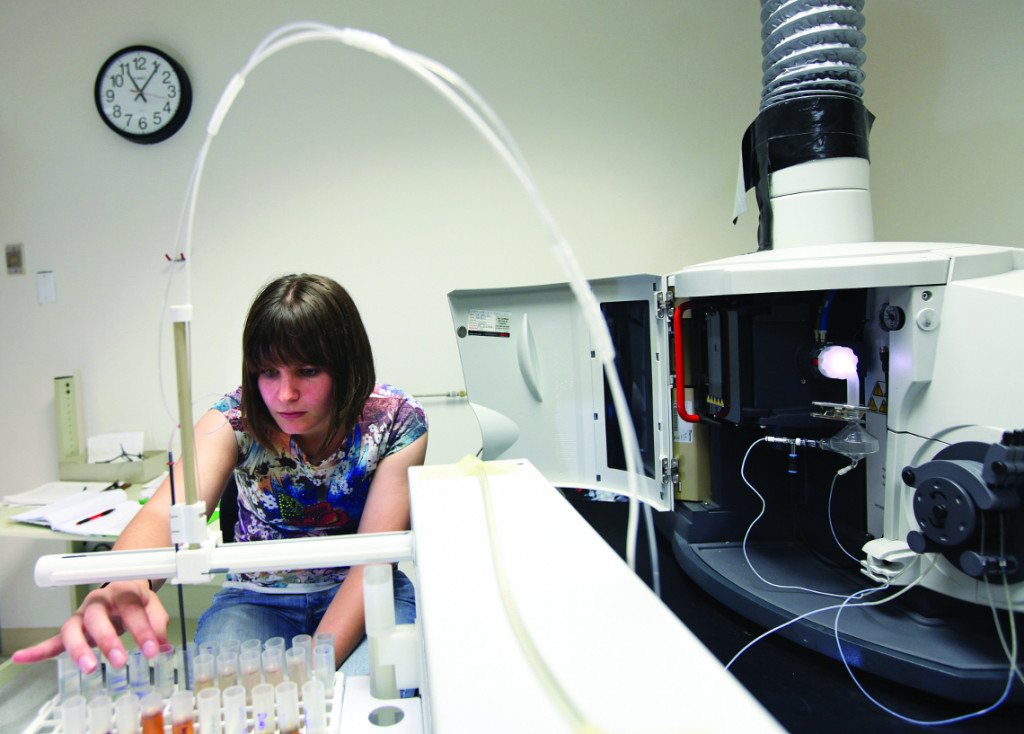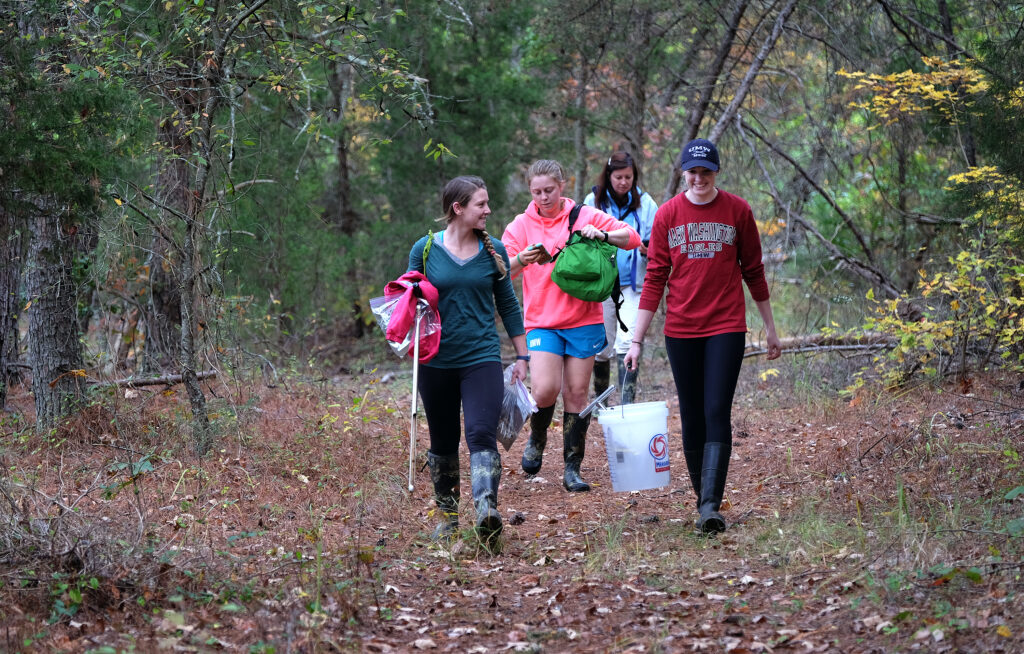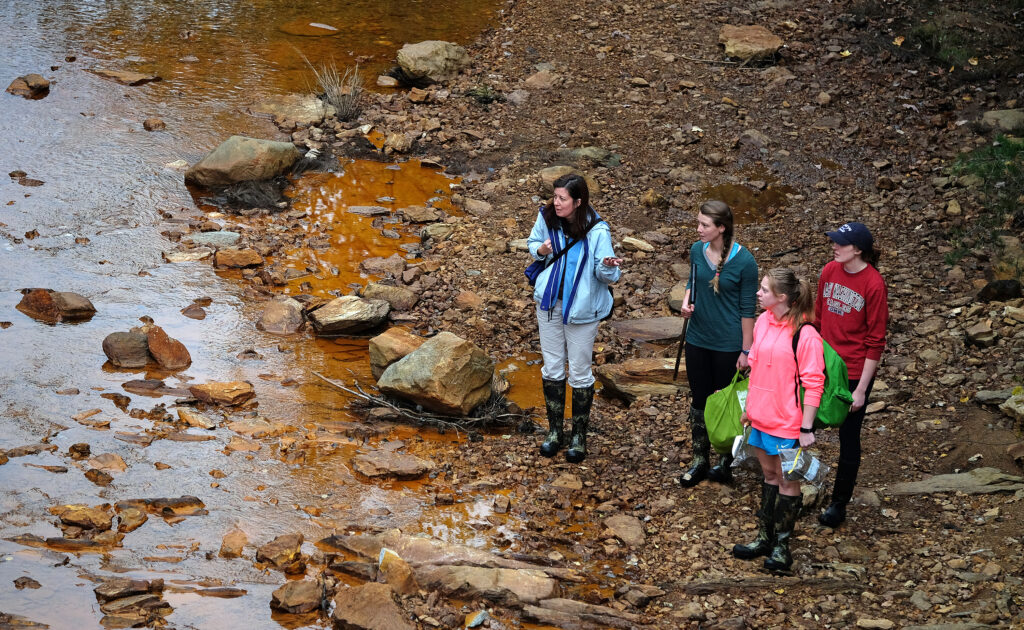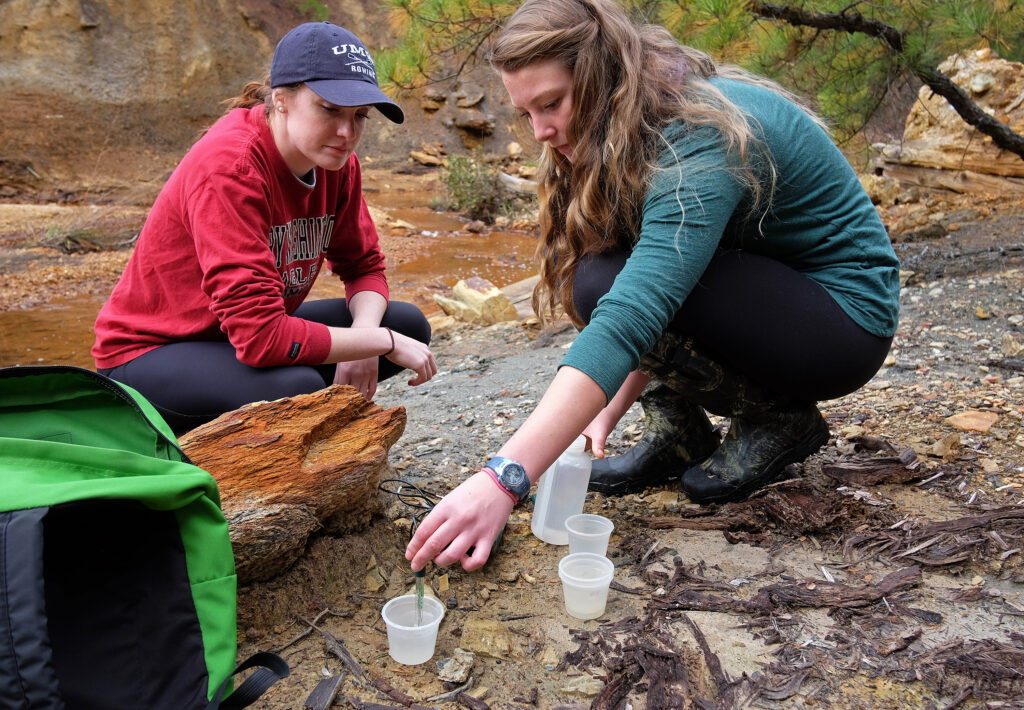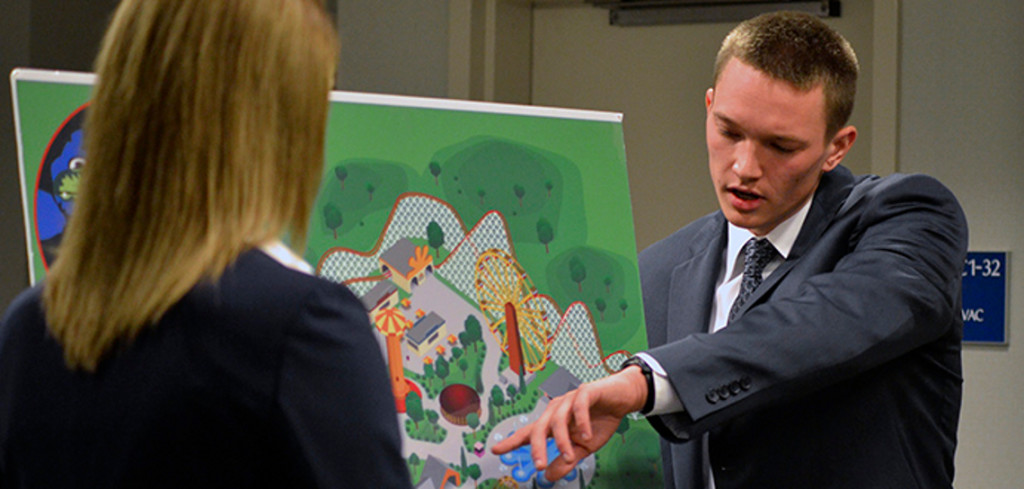Environmental Sustainability and Policy
Understand a complex relationship
Major in environmental sustainability and policy at the University of Mary Washington and you’ll seek answers to the most important questions of our time: How do humans affect the natural world, and how can we protect the systems necessary to sustain life? Explore the natural world from the nearby Rappahannock River to the planet’s most threatened ecosystems. Discover a new way of thinking and communicating about the world as you develop the problem-solving skills to make a difference.
Degree Awarded
Students majoring in Environmental Sustainability and Policy who complete all requirements earn the degree of Bachelor of Science (B.S.) in Environmental Science and Geology.
Areas of Study
The environmental sustainability and policy major starts with a firm foundation in chemistry, biology, and geology. Then you’ll select from environmental science, geography, political science, economics, and sociology classes to create a course of study that meets your interests and career goals.
Career Opportunities
Recent UMW environmental sciences graduates have found positions with the U.S. Environmental Protection Agency, the U.S. Geological Survey, the Peace Corps, consulting firms, state and local governments, and nongovernmental organizations. Many pursue advanced degrees in law school or fields such as marine conservation, soil science, environmental management or policy, or forestry.
Internships
In recent years, UMW environmental sciences majors have participated in internships with the City of Fredericksburg, the Army Corps of Engineers, the Virginia Department of Game and Inland Fisheries, Friends of the Rappahannock, Marstel-Day LLC, the Chesapeake Climate Action Network, Greenpeace, the U.S. Environmental Protection Agency, the U.S. Department of Agriculture, and more.
Highly motivated and talented students can engage in rigorous honors-designated coursework, interdisciplinary seminars, internships, extended research and creative projects, and community service. Honors students often present at professional conferences and publish in journals, making them highly sought-after by employers or graduate programs.
Major Requirements
The environmental sustainability and policy major requires 46-47 credits including courses in environmental science, geography or GIS, biology, chemistry, and economics. Major electives include courses in philosophy, political science, or sociology.
Minor Requirements
The environmental sustainability minor requires 18-21 credits.
Recent awards include the Peggy Ellis Gill Scholarship for an outstanding physical science undergraduate and the Elsa von Muller Leidecker Scholarship for excellence in academics, service, and research.
